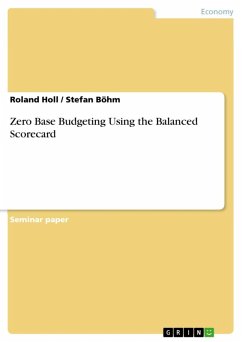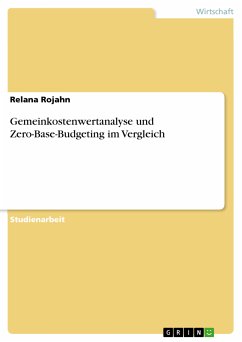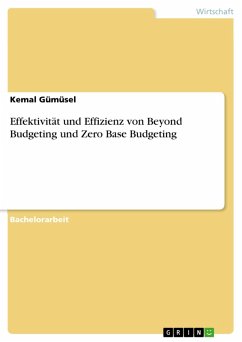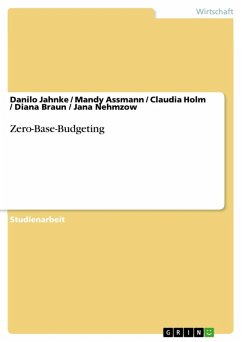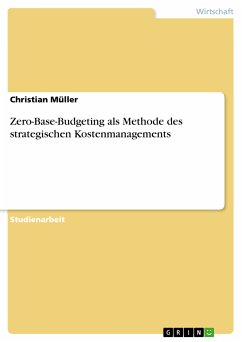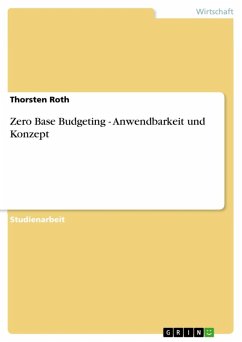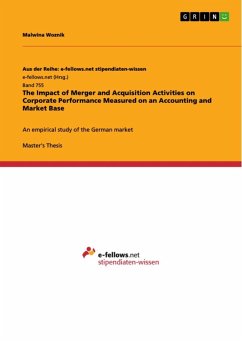Seminar paper from the year 2005 in the subject Business economics - Controlling, grade: 2,3, European University Viadrina Frankfurt (Oder), language: English, abstract: The Planning Process itself is often defined differently across companies. One company might think of it as encompassing everything from strategy development to operational planning and quarterly forecasting, to management reporting and performance scorecards. For another company, it might be nothing more than developing departmental budgets once a year. The real purpose of planning (which companies can easily lose sight of) is to improve decision making. But not only decision making is of interest, there are other questions that need to be answered, for example how to handle overhead costs, create more efficiency and effectiveness in the company, through an optimized communication process. In this term paper, two completely different procedures, namely Zero base budgeting and the Balanced Scorecard are analyzed. The first two chapters deal with the attributes of BSC and ZBB. A typical course of actions for both procedures is illustrated and analyzed. Subsequently advantages and disadvantages of both operations are elaborated and a conclusion is drawn. Zero base budgeting is a bottom-up process, which means it starts at bottom and ends at the top(-management). The Balance Scorecard is top-down procedure, which is exact the opposite. At first view, therefore a combination of BSC and ZBB appears to be logical and perfect matching. The schedule of this construct, where ZBB is combined with the BSC, is performed in chapter four. Both ZBB and BSC feature lacks, because every single procedure of the two focuses on a specific assignment and neglects other important aspects. The question is, can the lacks of ZBB and BSC compensate each other, so that finally a procedure is generated, which unites the positive attributes of both processes. In order to analyze and judge the construct of "ZBB using the BSC", different criteria are defined in chapter five, and the construct is being judge by these criteria, which represent attributes, a successful strategic, tactical and operational planning system should fulfil. In the end, a final conclusion is drawn, if it is possible to unite ZBB and BSC and to generate a procedure, whose benefits generally considered lies above its costs.
Dieser Download kann aus rechtlichen Gründen nur mit Rechnungsadresse in A, B, BG, CY, CZ, D, DK, EW, E, FIN, F, GR, HR, H, IRL, I, LT, L, LR, M, NL, PL, P, R, S, SLO, SK ausgeliefert werden.

